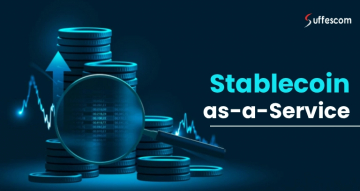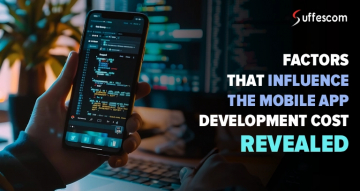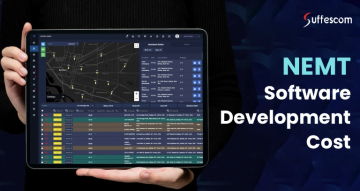How to Build a Crypto AI Agent: 2026 Guide for Traders and Developers

Want to automate your cryptocurrency trading but frustrated with the opportunities slipping away while you’re sleeping? Perhaps the solution may lie in creating your crypto AI agent, because what if I told you that there are autonomous robots that analyze markets, make trades, and oversee risk 24/7.
In 2026, the use of crypto AI agents is no longer experimental. They are handling DeFi projects worth billions of dollars, strategizing on yield programs, and some are even involved in DAO governance. The global crypto trading automation industry earned $47.43 billion in 2025.
These intelligent systems combine machine learning and blockchain to develop highly autonomous financial assistants. These search multiple exchanges simultaneously, identify arbitrage opportunities within milliseconds, and implement advanced strategies across dozens of protocols, all while you focus on higher-order strategies.
This comprehensive guide walks you through exactly how to build a crypto AI agent from scratch, whether it’s as a computer programmer working on bespoke automation or as a trader trying to grasp the tech behind the future of Web3.
What Are Crypto AI Agents and Why They Matter
Crypto AI agents are autonomous systems that operate on or interact with blockchains using artificial intelligence. These agents can collect data, make predictions, optimize strategies, and execute transactions often without human intervention. They’re used across trading, yield farming, NFTs, DAOs, and security systems.
By leveraging AI in a decentralized environment, these agents can act on real-time data, react faster to market events, and scale decision-making across multiple protocols. In a market where milliseconds matter, AI agents unlock superhuman speed and precision.
How to Build Crypto AI Agents: Understanding the Architecture
It is necessary to learn how crypto AI agents function in order to build your own. They continuously have sensors for on-chain and off-chain events, use algorithms for predictions, and automatically carry out many actions such as swapping tokens, funding proposals, or balancing your portfolio.
Smart contract logic and machine learning combined enable agents to run on their own, adapt as they learn, and ensure their performance is the best possible with no human help. Normally, an agent’s path looks like this:
1. Data Ingestion from On-Chain and Off-Chain Sources
To begin with, custom AI Agents With Crypto Wallets collect a wide range of information. Information about liquidity and how wallets are active is factored into token price changes. In addition to collecting data on the blockchain, they look at information from social media, news outlets, and economic markers.
2. Predictive Modeling with Machine Learning
Using machine learning models like LSTMs, transformers, and reinforcement learning, agents can forecast price movements, detect sentiment shifts, or identify arbitrage opportunities.
3. Strategic Execution via Smart Contracts
Agents can trigger smart contract functions or submit transactions autonomously. For example, a trading agent may place a limit order or rebalance a portfolio across DeFi protocols.
4. Adaptive Learning and Model Updates
A successful crypto AI agent can change over time. Comparing results with predictions allows the system to update its models. As a result of this learning loop, the agent gradually improves in accuracy, works faster, and adjusts better to new market situations.
In the non-stop world of decentralization, what was useful a month ago is no longer adequate today. Creating your own AI agents for crypto means staying ahead by making decisions rapidly, precisely, and wisely.
Moving forward, let’s delve deeper into its real-world applications.
Your AI Agent for Smarter Crypto Decisions
Deploy your own crypto AI agent today, automate trades, analyze markets, and stay ahead 24/7.
Top 5 Use Cases for Crypto AI Agents in 2026
Currently, crypto agents powered by AI do a lot more than simply handle trades for individuals. Because of smart contracts, these systems can do a variety of things on the blockchain, including overseeing assets and participating in running the system. A look at how these agents are shaping today’s crypto landscape follows below:
1. AI-Powered Trading and Market Sentiment Analysis
Although algorithmic trading has existed for years, AI agents introduce extra responsiveness. They analyze feedback and talk from forums, TV broadcasts, and social websites to discover sentiment changes before they show up in the charts.
An AI agent monitors X for chatter about Bitcoin ETF approvals, changes in Ethereum, and other topics and routinely repositions assets based on forecasts or the latest trends.
2. Yield Optimization and DeFi Strategy Automation
DeFi is complex and constantly moving. AI agents excel at rebalancing portfolios, optimizing yields, and managing risk across multiple protocols.
Imagine an agent that dynamically allocates capital across lending platforms, yield farms, or liquidity pools, adjusting in real time based on interest rates, TVL shifts, or protocol health scores.
3. Automated NFT Lifecycle Management
The NFT market demands speed and trend-awareness. Crypto AI agents can assist in the entire NFT lifecycle, from minting and pricing to content generation and listing.
Agents can assess market demand, rarity trends, and sales velocity to make informed decisions, or even use generative AI to create new collections in alignment with market sentiment.
4. Threat Detection & Compliance Monitoring
Using modern neural networks and machine learning models, the agents study data trends and project results. They can also assume a dip in token value based on social sentiment, movements in whale wallets, and anticipated governments stepping in to regulate cryptocurrencies.
5. Governance Participation in DAOs
Decentralized governance is powerful but complex. With the volume of proposals and the pace of decision-making, it's easy for token holders to fall behind.
AI agents can simplify DAO engagement by summarizing proposals, forecasting vote impacts, and even casting votes automatically based on user-defined rules or historical behavior, ensuring consistent, intelligent participation.
How to Build a Crypto AI Agent: Step-by-Step Guide

To build crypto AI Agents isn’t just about writing code; it’s about designing an intelligent system that can operate autonomously on decentralized networks. Whether your goal is automated trading, DAO participation, or NFT deployment, the core development process follows a structured flow.
1. Define the Agent's Objective
Before diving into development to create my own AI agent in cryptocurrency, clarify what the agent is supposed to achieve. This could be:
- Getting the highest benefits from DeFi systems with automated tools
- Analyzing people’s opinions about cryptocurrencies to see how volatile the tokens might become
- Deciding on governance proposals using strict guidelines
- Based on the agent’s role in your system, it will have a specific design, demand unique data, and follow detailed action rules.
2. Set Up Your Development Stack
To build a robust crypto AI agent, you’ll typically need:
- Blockchain SDKs/APIs (e.g., Web3.js, Ethers.js, Alchemy API) for interacting with smart contracts and reading on-chain data.
- AI/ML frameworks (e.g., TensorFlow, PyTorch, Hugging Face) for training and inference.
- Data ingestion tools for off-chain sources (e.g., Twitter APIs, news crawlers, sentiment analysis APIs).
- Execution environments such as Node.js, Python, or Rust, depending on your system’s complexity.
- Crypto wallet development integrations (e.g., MetaMask, WalletConnect) for signing and executing blockchain transactions.
3. Build the Data Pipeline
Your agent needs to be constantly informed. So integrate:
- On-chain data: Prices, gas fees, wallet activity, smart contract events.
- Off-chain signals: Social media trends, regulatory announcements, or token sentiment.
- Use WebSockets for real-time feeds and APIs for structured, periodic pulls. Normalize this data for your models.
4. Train or Integrate an AI Model
Based on the use case, you may use:
- Classification models for detecting scams, rug pulls, or price drops.
- Time-series forecasting for predicting token prices.
- NLP models for parsing governance proposals or sentiment on Reddit/Twitter.
- Pretrained models can speed up this process, or you can train your own using historical blockchain and market data.
5. Decision Logic & Smart Contract Interaction
Once the model provides insights, define how the agent should act. Actions might include:
- Swapping tokens via Uniswap or other DEXs.
- Voting on DAO proposals.
- Rebalancing liquidity pools.
- Triggering alerts or defensive measures.
Use smart contracts or integrate with existing DeFi protocols to allow the agent to act on its decisions. Implement safety checks to avoid catastrophic execution.
6. Deploy & Monitor
Deploy your agent in a secure environment:
- Cloud services (e.g., AWS, GCP) or on-chain (e.g., through smart contracts or Chainlink automation).
- Monitoring dashboards to track performance, errors, and ROI.
- Set up alerting systems (e.g., via Telegram, Slack, or email) for real-time feedback.
7. Enable Continuous Learning
To keep improving, integrate feedback loops. Store historical data, outcomes, and performance metrics. Use these to retrain your models and fine-tune agent behavior over time.
By following this framework, developers can build custom crypto AI agents that are responsive, intelligent, and adaptive, capable of thriving in the fast-moving world of decentralized finance and governance.
If you are still unsure about how to build a Crypto AI Agent, contact an AI agent development company to clear all your doubts.
Essential Tools and Frameworks to Build Crypto AI Agents
AI/ML Frameworks: TensorFlow, PyTorch, scikit-learn (with specific use cases)
Blockchain Development Kits: Web3.js vs Ethers.js comparison
Agent Frameworks: LangChain, AutoGPT for crypto, CrewAI
Data Providers: CoinGecko API, Dune Analytics, The Graph
Testing Environments: Hardhat, Ganache, Tenderly for simulation
Real-World Examples of Crypto AI Agents
As both the crypto and AI spaces merge, core blockchain developers are testing strong use cases. Some AI agent examples are given below to demonstrate how extensively and flexibly this field is evolving:
1. Ai16z – Autonomous Investment DAO
Positioned as an “AI-powered hedge fund,” Ai16z is a decentralized autonomous organization that uses intelligent agents to manage and optimize capital allocation. These AI Crypto Agents in Crypto Trading evaluate risk, identify emerging opportunities, and adjust strategies in real time, all without traditional fund managers.
2. Zerebro – Autonomous Content Engine
Using Retrieval-Augmented Generation (RAG) and memory, Zerebro spreads content on social media. By doing this, the agent is able to remember what has occurred before, develop its voice as the story unfolds, and respond to users, all helping to create a single cohesive experience for many users.
3. Truth Terminal – Social Commentary via AI
Truth Terminal uses elements of performance and algorithms. It can run by itself and post funny, cynical, and reviews about crypto culture. It offers an ongoing example of how AI and Web3’s social and economic trends work together.
4. aixbt – Adaptive Trading Influencer Bot
Aixbt is more than a bot; it's a brand. This AI agent uses sentiment analysis and technical indicators to guide its trading decisions and share insights with its large following. With over 450k followers on X (formerly Twitter), it’s become one of the most influential voices in AI-enhanced crypto trading.
5. H4CK – Ethical Exploit Agent
H4CK, in the decentralized world, behaves much like a white-hat hacker. It checks networks for flaws, suspicious actions, or issues with smart contracts. In certain usages, it can guide or start patching on its own and act as an online safeguard for Web3 protocols.
You can also learn how to build an AI Agent by collaborating with the top AI agent development companies and turning your vision into reality.
Risks You Need to Understand Before Deploying an Agent
Although crypto AI agents offer many positive possibilities, they also present their own collection of risks. Just because businesses face these possibilities doesn’t mean you should stop using tech; you just need to be thoughtful and cautious.
1. Bad Data = Bad Decisions
AI agents rely extensively on data to function accurately. If the input is biased, out-of-date, or deficient, the outputs can be flawed or even dangerous. Before deployment, invest in AI Agents Integration Services to validate sources, filter noise, and ensure your knowledge base is reliable.
Pro Tip: Regularly audit your data pipelines and monitor for drift to keep decisions relevant.
2. Legal and Ethical Blind Spots
AI agents often operate across borders and platforms, but regulations like GDPR and CCPA still apply. Compliance is non-negotiable if your agent handles user data or makes decisions with a financial impact. Failure to follow legal protocols can lead to bans, shutdowns, or even legal penalties.
Rule of thumb: If your agent interacts with humans or handles sensitive data, involve legal early in the build process.
3. Volatility Can Break the Model
Crypto markets are prone to wild swings and rapid sentiment shifts, something even the most advanced models struggle to predict. During events like the Terra/Luna collapse, AI agents trained on historical patterns may react poorly or too slowly.
Strategy tip: Set transaction limits, apply diversification logic, and regularly stress-test your models for edge cases.
4. Infrastructure Bottlenecks
The majority of AI models depend on resources away from the blockchain, slowing down operations and adding complexity. Because of low blocks in the chain or congested networks, blockchain can make it difficult to do real-time inferences in many trading or governance situations.
Find agent platforms with API integration, smooth handling of queues, and alternative protocols for increased service dependability.
5. Security Vulnerabilities
Even a tiny, unnoticed mistake in coding can be exploited by many people. Unscrupulous individuals are on the lookout for both poorly protected smart contracts and insecurely built bots. Because of their power to execute, crypto agents make attractive targets.
- Always follow security best practices:
- Use secure, audited contracts
- Obfuscate sensitive agent metadata
- Implement access controls and activity monitoring
Future Trends: Where Crypto AI Agents Are Headed
AI agents are ready to transform the crypto space, not only by helping but also by acting as independent members in the system. As these technologies develop, the union of AI and blockchain will reshape the functioning of protocols, funding, and the way people and communities make decisions.
1. Autonomous On-Chain Economies
Over time, AI agents will do more than react to changes in the markets; they will actually shape those markets themselves. Once a token launches and liquidity pools or DAOs have been created, these self-driven micro-economies will not require much attention from people.
Imagine that, on their own terms, different agents could negotiate trades, adjust the rules, or offer up ideas for updates, all by themselves.
2. Agent-to-Agent Negotiation
Smart agents will increasingly interact with one another, forming decentralized agent networks. These agents can negotiate, collaborate, or compete on behalf of users or organizations, execute trades, allocate capital, or vote in governance.
This opens the door to fully automated DeFi strategies, collaborative yield farming, or autonomous governance coalitions.
3. AI-Native Protocols
Most blockchains today were built for humans to use. In the next wave, we’ll see the emergence of AI-native protocols, chains, DApps, and tools specifically optimized for machine participants. These systems will prioritize throughput, low latency, and seamless API integration for AI agent use.
4. Personalized Financial Agents
With greater integration of LLMs and user data, agents will evolve into intelligent crypto companions. They’ll monitor your portfolios, alert you to DAO proposals aligned with your values, and automatically take action based on your risk profile or goals.
Think of them as AI-powered CFOs for your digital life, always working in the background.
5. Agent Marketplaces and Regulation
With the increased abilities and usage of AI agents, we think people will start markets where developers can offer and sell their models, traits, or agent characteristics. Rules for agent liability, data use, and transparency will be updated in the future.
Conclusion: The Autonomous Crypto Economy Is Already Here
AI agents crypto are no longer just experimental. They’re already reshaping how we trade, govern, and interact within decentralized ecosystems. From adaptive DeFi strategies to autonomous governance and real-time risk mitigation, these intelligent systems are becoming indispensable in Web3 development.
When the crypto space changes, your strategy should change as well. Understanding the AI agent development cost is crucial, and it will depend totally on your requirements. The coming years will go to businesses that combine automation without compromising security, compliance, and having workers oversee things.
In a world run by algorithms, your next smart decision might just be made by one.
Start Building Your Crypto AI Agent Today
Explore frameworks, APIs, and tools to create intelligent agents tailored to your use case. Don’t wait, automate your strategy and lead the next wave of Web3 innovation.
FAQs About Crypto AI Agents
1. What are Crypto AI Agents?
A Crypto AI Agent is an autonomous software system that combines AI with blockchain to analyze data, make decisions, and interact with decentralized platforms like DeFi, DAOs, or NFTs.
2. Do I need to be a developer to use or create one?
Not necessarily. While building from scratch requires technical knowledge, many platforms now offer low-code or no-code solutions for deploying AI agents in crypto.
3. Are Crypto AI Agents secure to use?
Security depends on how they're built and deployed. Using audited smart contracts, trusted APIs, and strict access controls is key to minimizing vulnerabilities.
4. How can AI agents make money in crypto?
AI agents in crypto can automate trading strategies, optimize yield farming, manage NFT portfolios, or even participate in governance to influence and capitalize on key protocol decisions.
5. Can I use AI Agents on platforms like Uniswap or PancakeSwap?
Yes. AI agents can be connected to DEXs via APIs or smart contracts to perform automated swaps, liquidity provision, or arbitrage.
6. What’s the cost of developing a Crypto AI Agent?
It depends on complexity. A basic trading agent can start from $5,000, while a full-featured DeFi/NFT/governance bot may cost upwards of $20,000+. Contact us for a tailored quote.
7. How do crypto AI agents make decisions?
They use data from on-chain/off-chain sources, process it through ML models, and execute actions via smart contracts.







